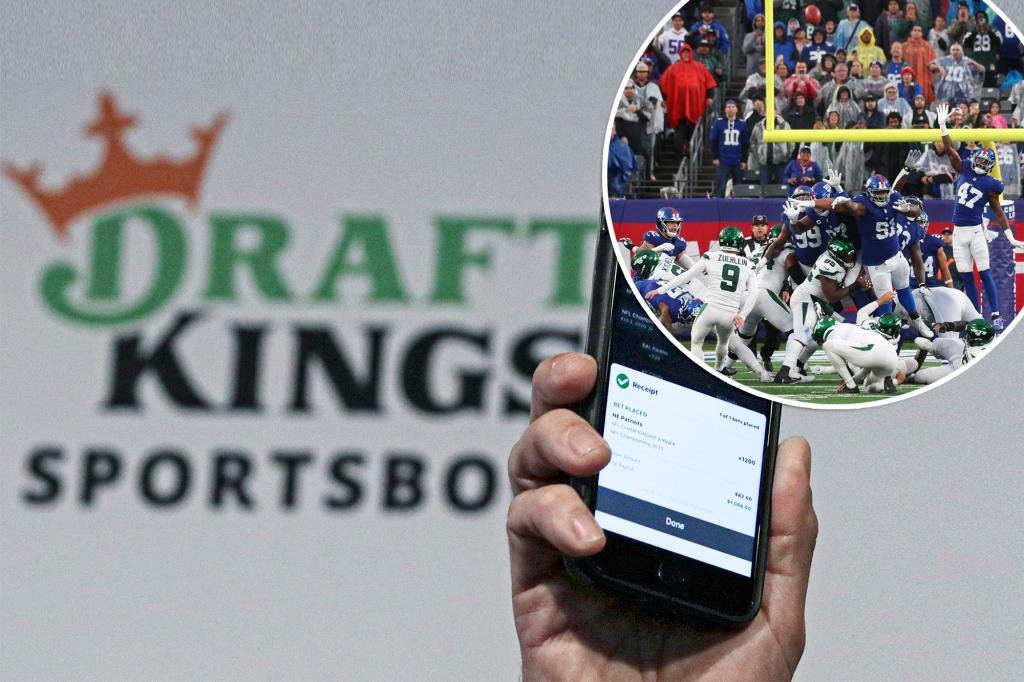If you like sports betting, whether year-round or just during football season, you should care about the tax rates that betting companies face in each state.
DraftKings announced on Aug. 1 that beginning in 2025, customers located in states with higher tax rates (where 30 percent of profits or higher go to the state) will now have to pay a surcharge on every winning bet to help pay that burden.
This surcharge will force bettors to pay a three to four percent fee on all winning bets’ profits and would affect players in New York, Illinois, Pennsylvania and Vermont.
No other sportsbook has announced plans to do this. So, why is DraftKings?
Gambling analyst Chris Grove, a partner at Eilers & Krejcik Gaming, called it a risky threat from the betting giant to legislatures in prospective states.
Illinois moved betting tax rates from 15 percent up to 40 percent of profits earlier this year.
“It is a threat by DraftKings to any state looking to raise tax rates,” Grove told The Post, adding that tax rates are not currently too high, but could if other states look to pull off what Illinois just did.
Grove adds that this threat, aimed at state legislatures more than bettors, is a risky proposition made by DraftKings CEO Jason Robbins.
“They are a little bit trapped on that threat,” Grove said. “Either they do it and piss off consumers or don’t do it, and their future threats are hollow.”
All but 12 states have online sports betting right now but more are expected in coming years and eventually they will have to come up with a tax rate.
“There’s no reason for states to take less than 30 percent at this point,” Grove said, pointing to betting operators being able to operate in New York with a 51 percent tax rate.
“New York is the gravity, tax rates aren’t going down, if you don’t do something.”
Grove adds that online sports betting is a 25-30 percent margin business, making it quite lucrative, especially when operators are at scale.
The problem with that is for the smaller guys like Fanatics, ESPN BET, BetRivers and BetParx.
Will those operators even be able to exist if they aren’t at scale or close to it?
Sports betting analyst Ryan Butler told The Post that new operators could very well be doomed as we trend closer and closer to a duopoly in sports betting.
DraftKings and FanDuel control roughly 70 percent of the sports betting action around the country.
“The taxes, licensing fees, regulatory and compliance costs and business expenses do make it daunting for new operators to enter the market,” Butler said. “This is especially concerning when DraftKings and FanDuel alone make up roughly two-thirds of the national handle, and seven other sportsbooks combine to make up another third. Outside these nine, all other books – combined – make up less than one percent of the national handle.”
Competition in this market is critical, but the tax rates and ensuing surcharges that DraftKings has decided ––for now––to lay on their consumers gives us one big loser: The little guy.
Where will they go?
It’s reasonable to expect some bettors who don’t want to pay an additional three to four percent taxes on their winnings before they even get to income tax time will go back to the illegal market.
“Illegal sportsbooks will always be a part of the US sports betting ecosystem,” Butler added.
Get the lowdown on the Best USA Sports Betting Sites and Apps
However, as we’ve seen in the past with Shohei Ohtani’s interpreter betting millions of dollars to an illegal bookmaker, you’d ideally like to keep those operations at bay.
It’s a tough cookie to crack in the sports betting world, but presumptive tax rates in the 30-40 percent range look certain to hurt only the consumer and kill competition in a growing market.
Source Y.R -#DraftKings #surcharge #York #sports #bettors #latest #threat
2024-08-07 20:08:00
